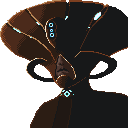NUMBERS, AND SYSTEM TRANSPARENCY
Posts
author=Shadowtext link=topic=3169.msg62270#msg62270 date=1234846719
That last response was more directed at the whole "Well this isn't changing so do it yourself!" response
When you put it that way, then yeah, I guess it was, but really, it ISN'T changing. (And probably never will but who knows)
Wouldn't this make the game mechanis more opaque than transparent? Let's say I have two characters named AAAA and BBBB and AAAA had A for attack and BBBB had B for attack. Now I feel that I need more physical damage output so I give BBBB an item that gives +20% attack. What does that mean? Is a B-attack + 20% comaprable to an A-attack? The only real way to test this is to look at before and after damage input using the closest thing you can get to real numbers.
(This could probably be circumvented if the item 'increased value grade' from B to B+ or something, but now the problem is what's the difference between B and B+? The solution would probably be the same)
Numbers are awesome because they're ordinal instead of nominal. Four will always be two times bigger than two but what about Yellow and Orange or A and A+++?
(This could probably be circumvented if the item 'increased value grade' from B to B+ or something, but now the problem is what's the difference between B and B+? The solution would probably be the same)
Numbers are awesome because they're ordinal instead of nominal. Four will always be two times bigger than two but what about Yellow and Orange or A and A+++?
I think I misunderstood something between the OP and the latest post so let me know if I'm on a completely different train than everybody else please
USE BOTH
Rate Alice's 157 in INT an A+ compared to Greg's B+ at 126.
Sounds good to me, anyway.
Rate Alice's 157 in INT an A+ compared to Greg's B+ at 126.
Sounds good to me, anyway.
Chaos, that's a really good idea.
ALSO
I find that in Exit Fate (a Suikoden clone in which I currently have 47 characters), I usually have no idea what the numbers mean--except for HP, I guess. My solution is just to go to my statistician and have her pump out lists of MAG stats, #battles, SKL stats... anything that can help me decide on the best party. Having the ability to have all the information on ONE SCREEN (not flipping through four-five Character screens or whatever) makes it easier to understand TEH NUMBAHZ without making some weird system.
Aten: Do you honestly believe that people who change little pieces of game design will tout it as an OMGFEATURE? A good developer probably has control of his hubris (lol Bob's game).
ALSO
I find that in Exit Fate (a Suikoden clone in which I currently have 47 characters), I usually have no idea what the numbers mean--except for HP, I guess. My solution is just to go to my statistician and have her pump out lists of MAG stats, #battles, SKL stats... anything that can help me decide on the best party. Having the ability to have all the information on ONE SCREEN (not flipping through four-five Character screens or whatever) makes it easier to understand TEH NUMBAHZ without making some weird system.
Aten: Do you honestly believe that people who change little pieces of game design will tout it as an OMGFEATURE? A good developer probably has control of his hubris (lol Bob's game).
I didn't read the whole thread because I'm lazy. However, I'll offer my two cents anyway. I don't think the way stats are weighted needs to be changed, but I completely agree in transparency. The more easily a player can understand the full consequences of decision-making, the more easily he can focus on what actually matters: making the those decisions. One point of strength should be fully understood.
I think it's a folly when developers try to obscure game mechanics or don't do a very good job of explaining how they work. Look at FF8. The Junction system is one of the best Square-enix has designed, but look at how radically different opinions are on the game--because most people had no idea what it all meant. That or they just hate soap operas.
One of the most acclaimed RPGs ever made, Diablo 2, demonstrates this pretty well. You know exactly how much the potency of your skill will improve before you add a point to it. Right from the start you can see your entire skill tree so you know how all those points will ultimately work towards whatever skillset you're going for. Hover your mouse cursor over your armor rating and you see exactly what your chance to dodge is against the last monster type you faced. Transparent.
I think it's a folly when developers try to obscure game mechanics or don't do a very good job of explaining how they work. Look at FF8. The Junction system is one of the best Square-enix has designed, but look at how radically different opinions are on the game--because most people had no idea what it all meant. That or they just hate soap operas.
One of the most acclaimed RPGs ever made, Diablo 2, demonstrates this pretty well. You know exactly how much the potency of your skill will improve before you add a point to it. Right from the start you can see your entire skill tree so you know how all those points will ultimately work towards whatever skillset you're going for. Hover your mouse cursor over your armor rating and you see exactly what your chance to dodge is against the last monster type you faced. Transparent.
I skimmed the topic so I'm not entirely sure what it is about. But I'm a big fan of numbers. But like (I think) Shadowtext I don't really like the meaningless ones. Without transparency you have no idea what the numbers do.
For example I'm a big sim game fan. Sport sims. A game like Football manager is nothing but stats and numbers. Occasionally you're not entirely sure what numbers do (but in the newer versions you can hover or click on the stat and see what it does) or whether it's good to have a high or low number (in some older games lower numbers in certain things were better. Such as aggression or proneness to injury). But there's a cap to the numbers (Traditionally 1-20 it seems) and they're sometimes colour-coded (green numbers=good/high)
Uhm yeah. That was just a paragraph of my love of numbers.
Exchanging numbers for words? I don't mind. I'm also sort of fond of a kind of "treshold" system". Which essentially is a low-number system but based around a different idea. For example a treshold wound system would have "unhurt, lightly wounded, wounded, nearly dead, dead". Often games that have these have numbers under them (100-95% unhurt, 95-75% lightly wounded etc) but what if you only had those numbers alone. So that an attack of a certain strength would take you down from unhurt to lightly wounded and then it'd sort of be reset. And each treshold would have its own treshold (so perhaps it'd be easier to go from unhurt to lightly wounded than from wounded to nearly dead)
Of course in the end those systems all work in the background...
Oh yeah. I just figured out a point that I'll be making now. Disregard everything I've written before this. It was just ramblings. (Actually I've found that people usually only read the beginning and the end anyway so no harm done)
The most important thing is that you, as a maker, know exactly what each number does and knows its importance. I think a lot of RPGmakers (that is the persons making RPGs not the program) don't themselves understand the importance of Speed 5 vs Speed 7 in the game they're making and just make up numbers on the spot because "they have to be there right?"
For example I'm a big sim game fan. Sport sims. A game like Football manager is nothing but stats and numbers. Occasionally you're not entirely sure what numbers do (but in the newer versions you can hover or click on the stat and see what it does) or whether it's good to have a high or low number (in some older games lower numbers in certain things were better. Such as aggression or proneness to injury). But there's a cap to the numbers (Traditionally 1-20 it seems) and they're sometimes colour-coded (green numbers=good/high)
Uhm yeah. That was just a paragraph of my love of numbers.
Exchanging numbers for words? I don't mind. I'm also sort of fond of a kind of "treshold" system". Which essentially is a low-number system but based around a different idea. For example a treshold wound system would have "unhurt, lightly wounded, wounded, nearly dead, dead". Often games that have these have numbers under them (100-95% unhurt, 95-75% lightly wounded etc) but what if you only had those numbers alone. So that an attack of a certain strength would take you down from unhurt to lightly wounded and then it'd sort of be reset. And each treshold would have its own treshold (so perhaps it'd be easier to go from unhurt to lightly wounded than from wounded to nearly dead)
Of course in the end those systems all work in the background...
Oh yeah. I just figured out a point that I'll be making now. Disregard everything I've written before this. It was just ramblings. (Actually I've found that people usually only read the beginning and the end anyway so no harm done)
The most important thing is that you, as a maker, know exactly what each number does and knows its importance. I think a lot of RPGmakers (that is the persons making RPGs not the program) don't themselves understand the importance of Speed 5 vs Speed 7 in the game they're making and just make up numbers on the spot because "they have to be there right?"
Absolutely, Shinan. One of the biggest problems in the rm2k/3 community (imo) is how worthless the magic stat is unless you twist magic elemental damage around. The only exception is if you're making a low-number game like Dragon Fantasy--even then, Ephiam re-released DFII because I showed him how terrible his magic stat proportions were compared to a warrior.
HEY RM2k/3 USERS: +5 MGC IS WORTHLESS
HEY RM2k/3 USERS: +5 MGC IS WORTHLESS
author=Craze link=topic=3169.msg62311#msg62311 date=1234879126
Absolutely, Shinan. One of the biggest problems in the rm2k/3 community (imo) is how worthless the magic stat is unless you twist magic elemental damage around. The only exception is if you're making a low-number game like Dragon Fantasy--even then, Ephiam re-released DFII because I showed him how terrible his magic stat proportions were compared to a warrior.
HEY RM2k/3 USERS: +5 MGC IS WORTHLESS
Ah, the joys of a CBS. You can have a CBS too! Just do NOTHING ELSE BUT WORK ON THE DAMN CBS FOR A MONTH STRAIGHT and it'll get done, by the grace of God.
author=harmonic link=topic=3169.msg62318#msg62318 date=1234883497Alter A.I.L.A Genesis did it within the DBS. Just use common events. There are ways around the problem. :)
...Yeah because you can do that in rm2k3.
A custom battle system or the other engines are there too of course.
Also I don't like lots of numbers.
author=ChaosProductions link=topic=3169.msg62276#msg62276 date=1234848623I like that a lot.
USE BOTH
Rate Alice's 157 in INT an A+ compared to Greg's B+ at 126.
Sounds good to me, anyway.
But what about stat growths? Does Greg's B+ INT grow to A- in the next 5 levels, or does B+ represent how much his stats grow?
One think I like about Disgaea is the weapon mastery. Each humanoid class can equip any weapon, but their proficiency with them is marked with a letter- F to A and then S. The higher the letter (F being the worst and S being the best), the faster they learn the skills associated with the weapon. Stats use a similar system, with a percent that tells you how fast it grows. I think. That lets you know how good the character is going to be at whatever level before you buy the character.
On the point of Dragon Fantasy, I think the best way to remedy this problem is minimalist design. If you decrease the number, value, and scale of of your variable stats, I can imagine it would be a lot easier for the player to navigate and understand the system. Paper Mario comes to mind, and the base stat of 1 damage made it easy to understand how whatever would have an impact during battles.
Blizten: I agree! Having small numbers (quantity wise) is very effective. So that 1 STR makes a difference. The player should be able to "feel" stats change.
For those who love BIG NUMBERS.... just make your small numbers HUGE. (graphically.)
Like Terra in FF6 may have hit for 9999 with ultima... but
MY GUY HITS FOR 80!
For those who love BIG NUMBERS.... just make your small numbers HUGE. (graphically.)
Like Terra in FF6 may have hit for 9999 with ultima... but
MY GUY HITS FOR 80!
This is why I hate intros where you're playing some powerful dude with 643345 health and 2304920349 damage dealing. Even if it's just for the span of the intro it still makes me sick to my stomach :-[. Not that it makes games like Demon Legacy bad, but yeah.
author=harmonic link=topic=3169.msg62705#msg62705 date=1235149836now THIS would be next-to-impossible to do in Rm2k3
Blizten: I agree! Having small numbers (quantity wise) is very effective. So that 1 STR makes a difference. The player should be able to "feel" stats change.
For those who love BIG NUMBERS.... just make your small numbers HUGE. (graphically.)
Like Terra in FF6 may have hit for 9999 with ultima... but
MY GUY HITS FOR 80!
This is one of those times I wish IRL hadn't kept me away from this when it was first posted. I feel like all the good points have been brought up.
Well, the one thing I did want to say, to Shadowtext, is that I completely empathize with your initial post. I have been there many times myself, wondering what the context was for a character's STR or DEF score, and wonder how much better a 6 was than a 5, or 10 HP was in comparison to 8.
I remember back to the original Dragon Warrior game, were every little bit helped, and every point meant something. There was an RPG Maker game here that I played recently, called Dungeon of DOOM, that used a similar emphasis on the numbers. I think that the reason those numbers weren't viewed as extraneous was due to them being small.
I think the real issue isn't with the game, it's with the gamer. It's with us. Most humans start to lose context of really high numbers, and their enormity only impresses us due to the sheer amount of 0's we see (or if this is Final Fantasy, the amount of 9's we see). Most of us can't even fathom a million, let alone a billion. And just about every person alive could never grasp a trillion. (Interesting off-topic point, if you spent a million dollars a day since the birth of Jesus, today you'd still not have spent a trillion.) And don't even get me started on a googol or a googolplex.
Anyway, the point is that our minds start to break down in understanding the significance of numbers one we get higher than a few thousand. So the RPGs that use those large numbers, be they for stats or damage, are there solely to impress us, they are eye candy. It's mentally rewarding to build up your character to where you see '12,094' fly off the enemy as you execute a powerful attack. The numbers are meaningless at that point and are there to entertain you, such as the sparkling particle systems and the HDR lighting.
The games that take their numbers seriously, keep them low, so you can understand how that +1 to speed really makes a difference, while that +20 to HP may save you in the next boss fight. Xenosaga is another good example of that, up to a point, where a difference between a 4 and a 5 can make or break a party.
Other than that, the numbers are there to give the player something to feel he has control over, such as character growth, to give the player the feeling that they are growing their characters.
Well, the one thing I did want to say, to Shadowtext, is that I completely empathize with your initial post. I have been there many times myself, wondering what the context was for a character's STR or DEF score, and wonder how much better a 6 was than a 5, or 10 HP was in comparison to 8.
I remember back to the original Dragon Warrior game, were every little bit helped, and every point meant something. There was an RPG Maker game here that I played recently, called Dungeon of DOOM, that used a similar emphasis on the numbers. I think that the reason those numbers weren't viewed as extraneous was due to them being small.
I think the real issue isn't with the game, it's with the gamer. It's with us. Most humans start to lose context of really high numbers, and their enormity only impresses us due to the sheer amount of 0's we see (or if this is Final Fantasy, the amount of 9's we see). Most of us can't even fathom a million, let alone a billion. And just about every person alive could never grasp a trillion. (Interesting off-topic point, if you spent a million dollars a day since the birth of Jesus, today you'd still not have spent a trillion.) And don't even get me started on a googol or a googolplex.
Anyway, the point is that our minds start to break down in understanding the significance of numbers one we get higher than a few thousand. So the RPGs that use those large numbers, be they for stats or damage, are there solely to impress us, they are eye candy. It's mentally rewarding to build up your character to where you see '12,094' fly off the enemy as you execute a powerful attack. The numbers are meaningless at that point and are there to entertain you, such as the sparkling particle systems and the HDR lighting.
The games that take their numbers seriously, keep them low, so you can understand how that +1 to speed really makes a difference, while that +20 to HP may save you in the next boss fight. Xenosaga is another good example of that, up to a point, where a difference between a 4 and a 5 can make or break a party.
Other than that, the numbers are there to give the player something to feel he has control over, such as character growth, to give the player the feeling that they are growing their characters.



























